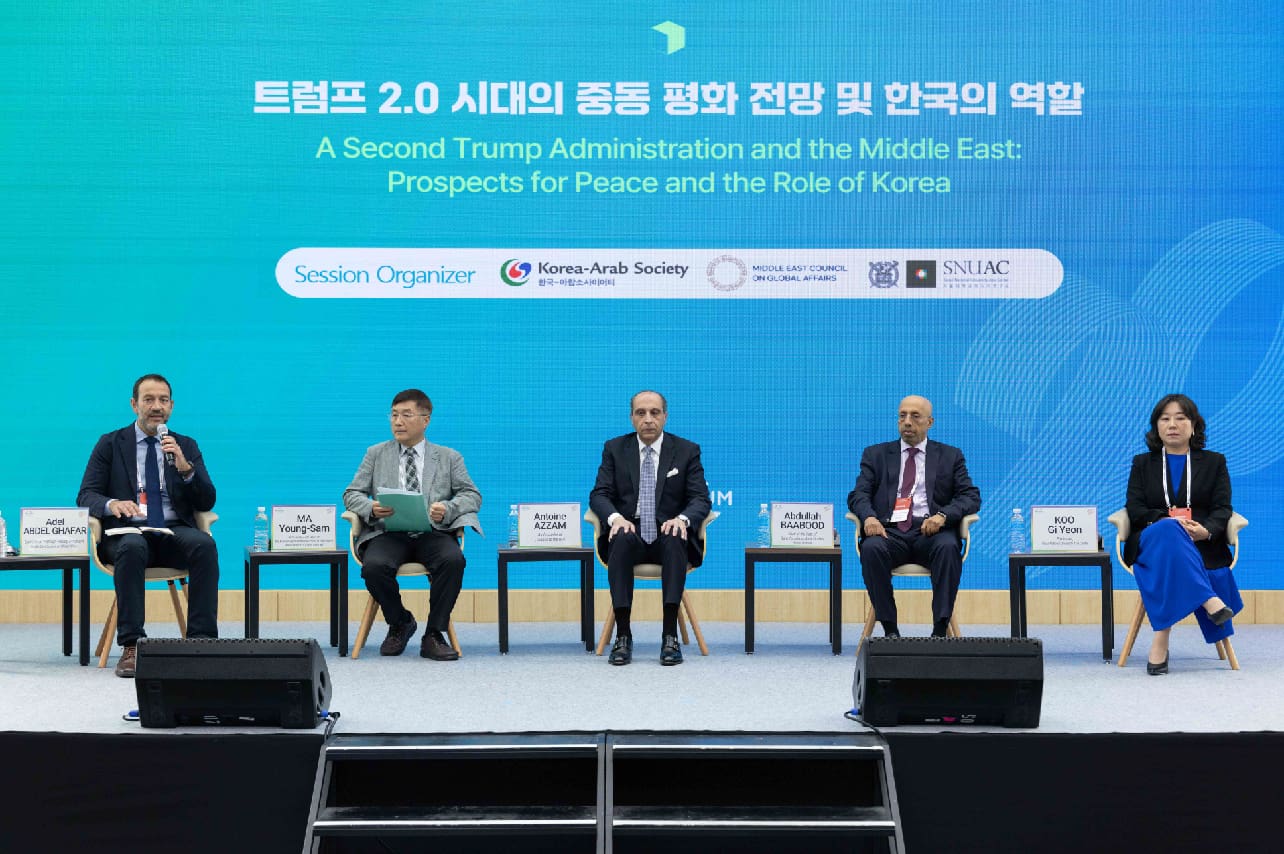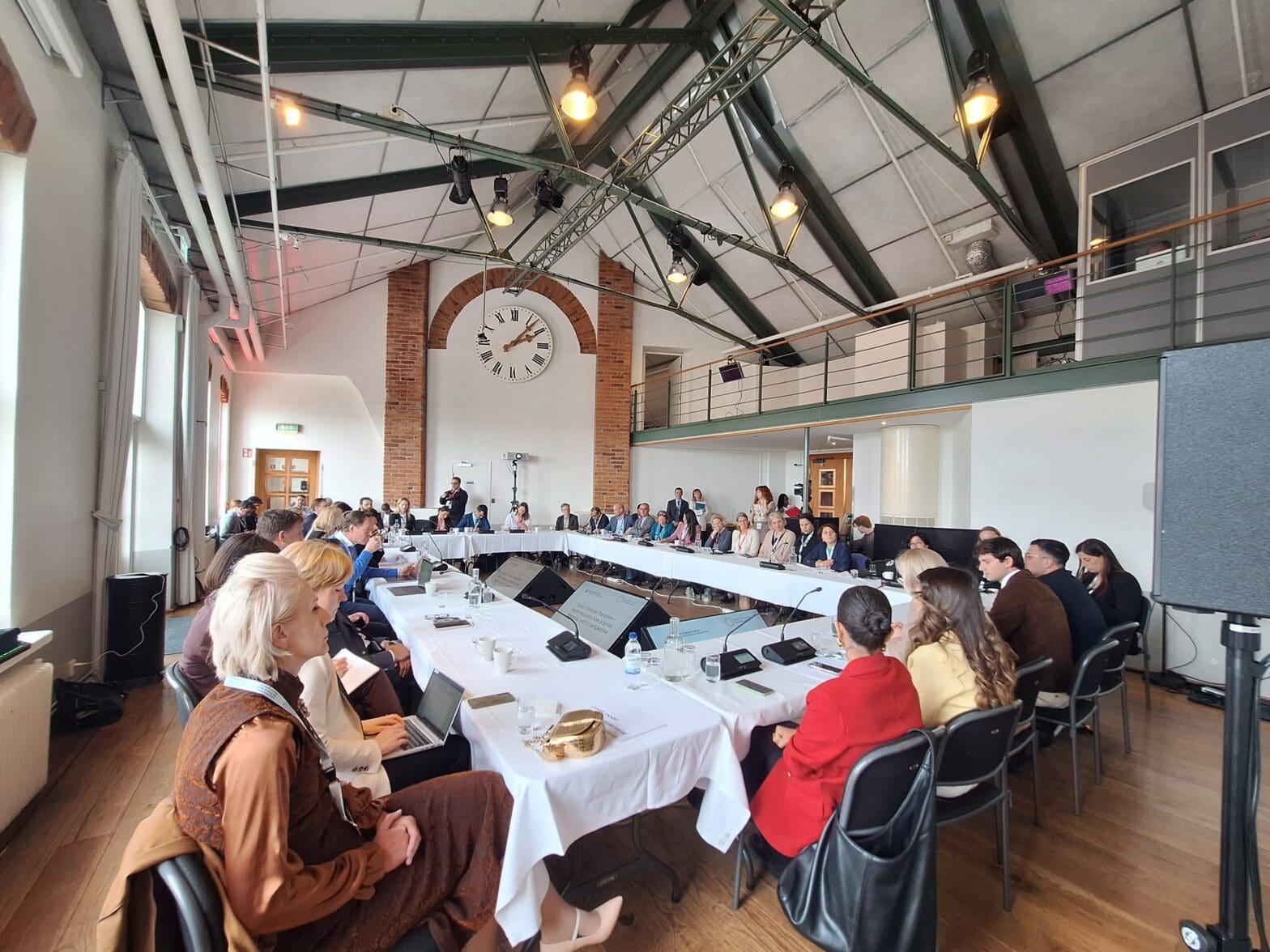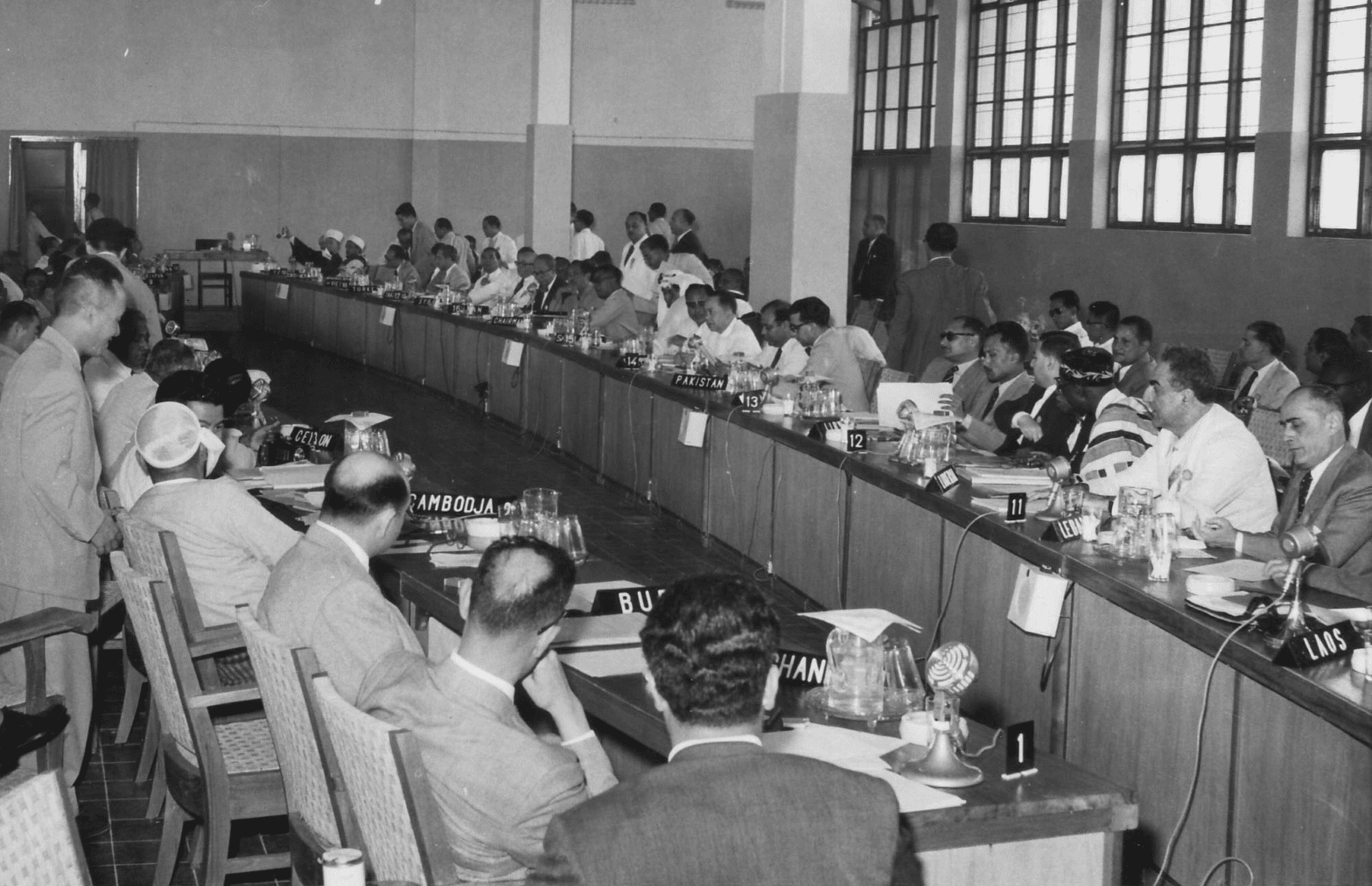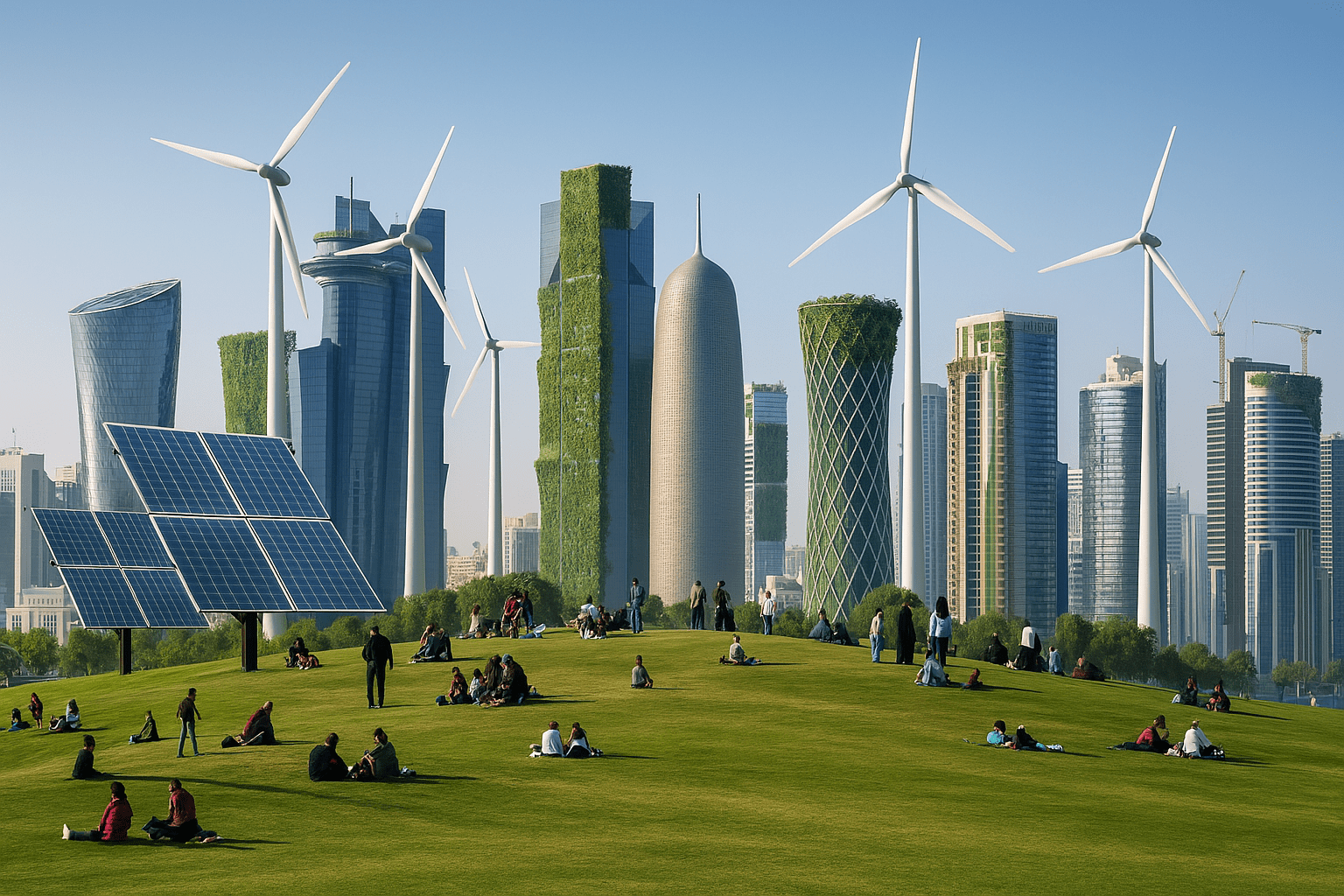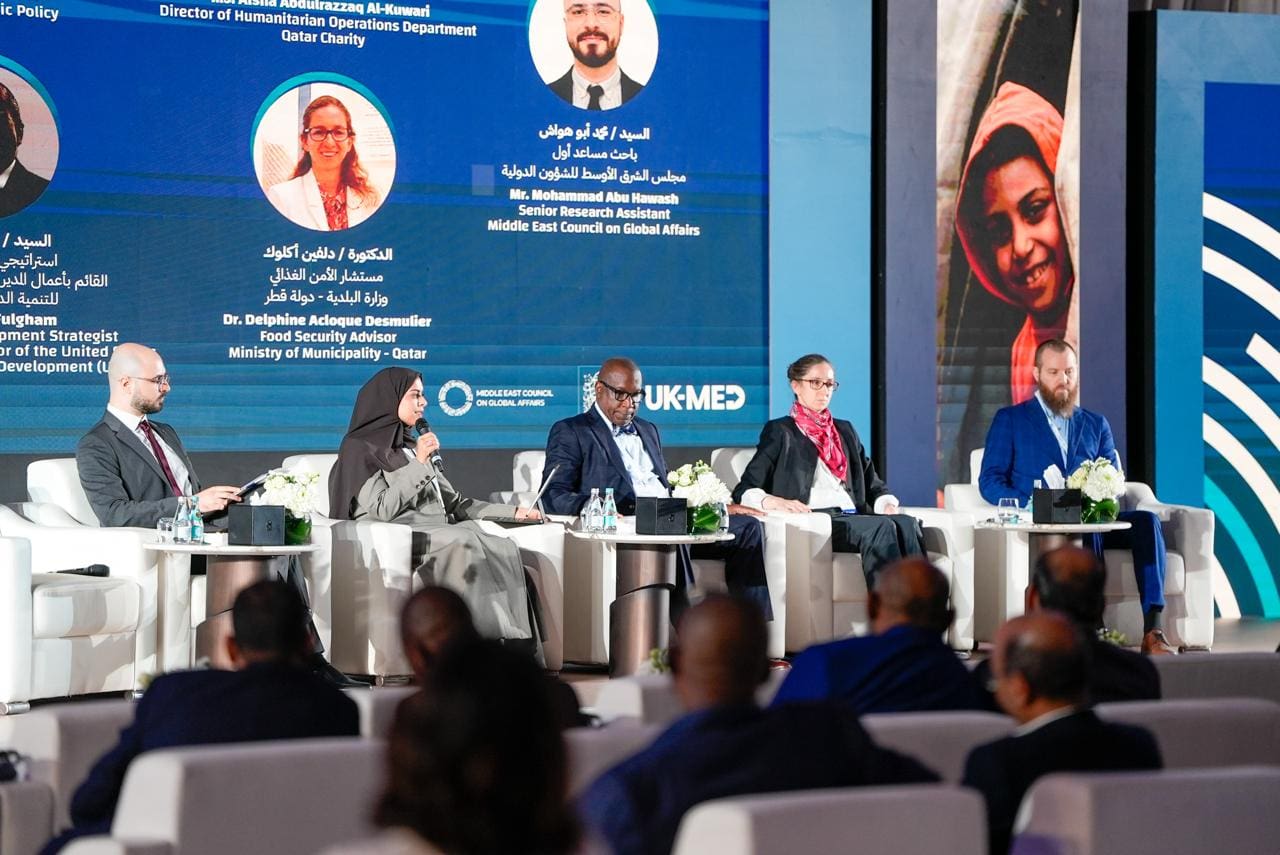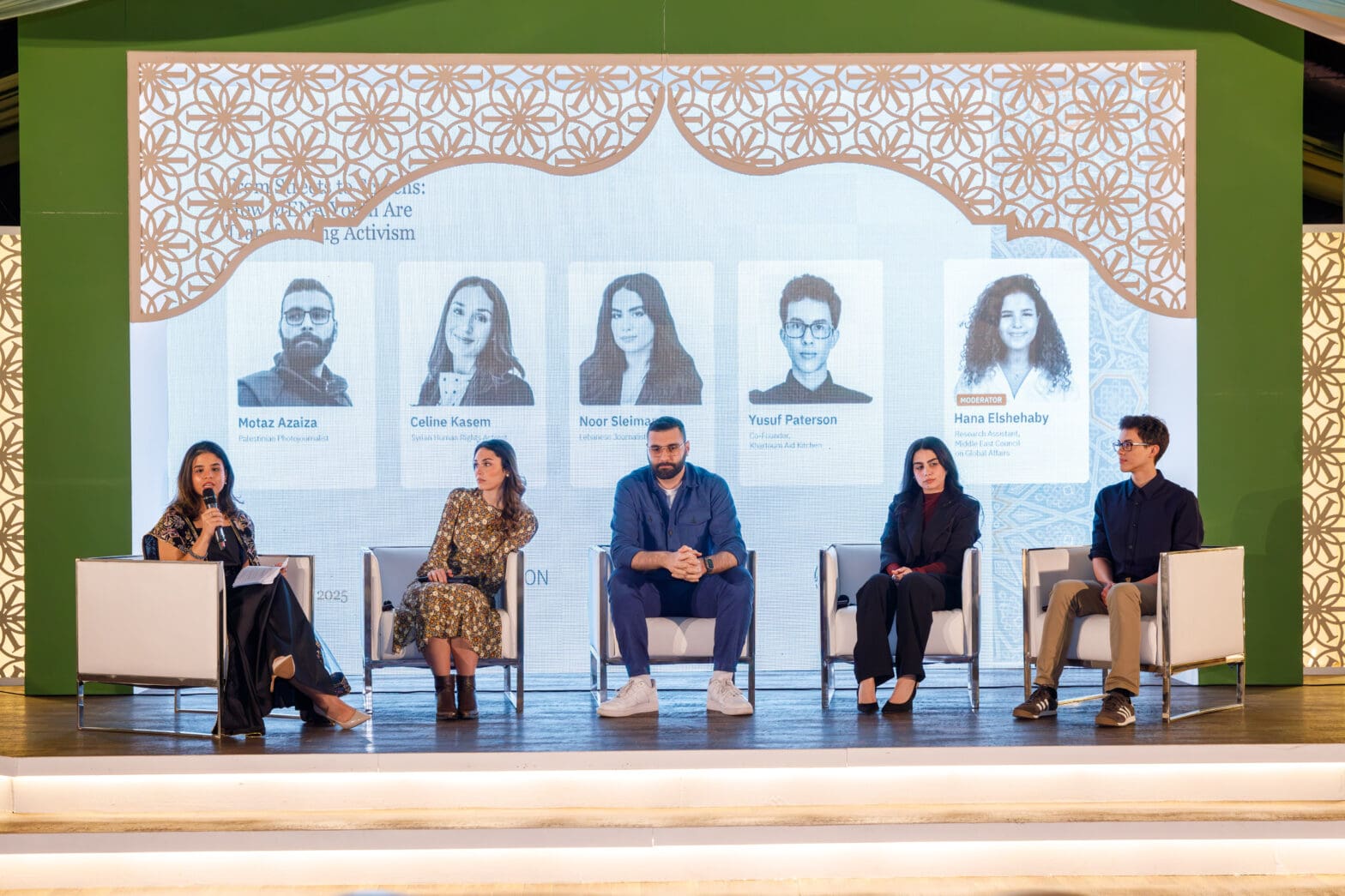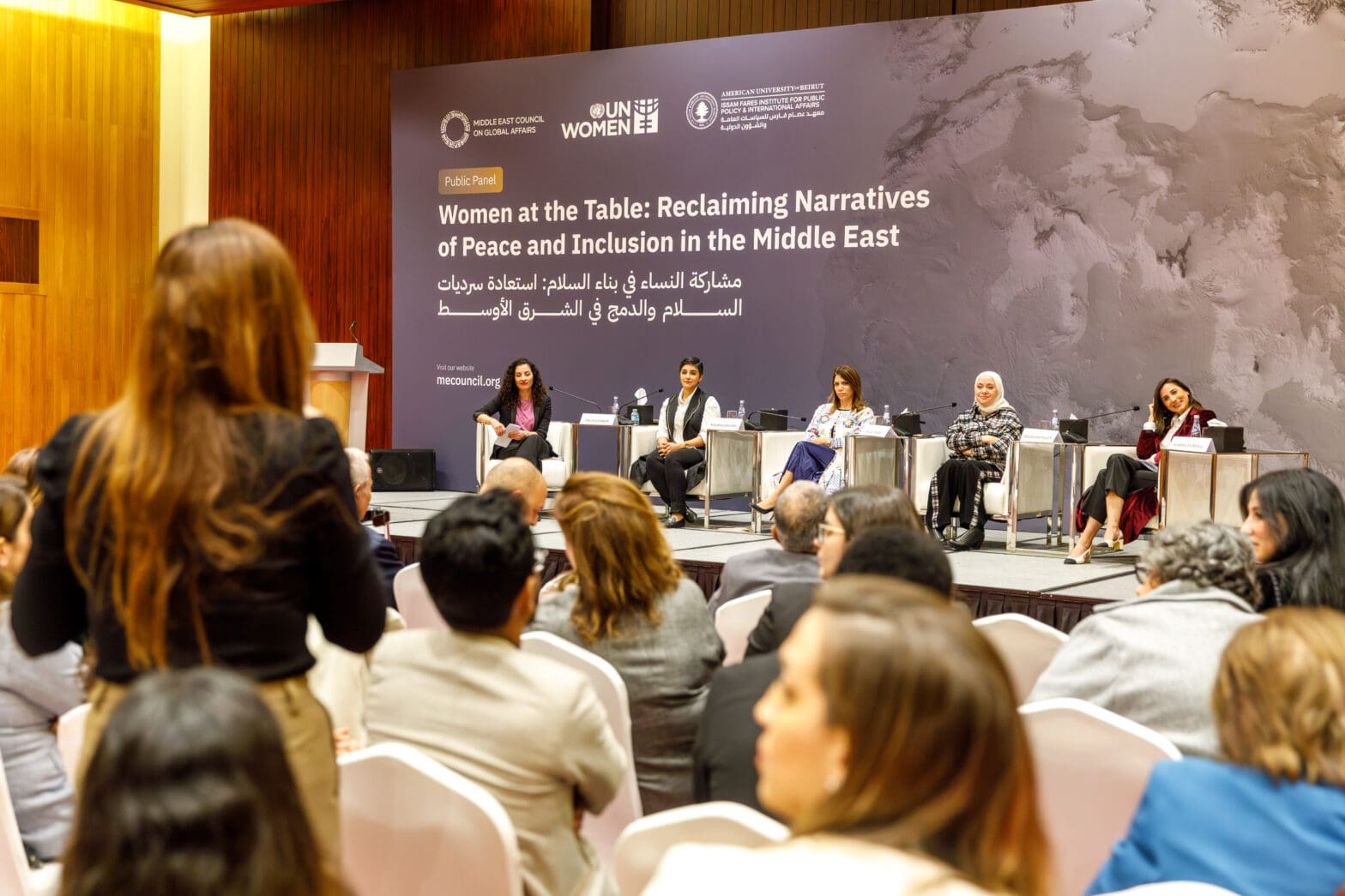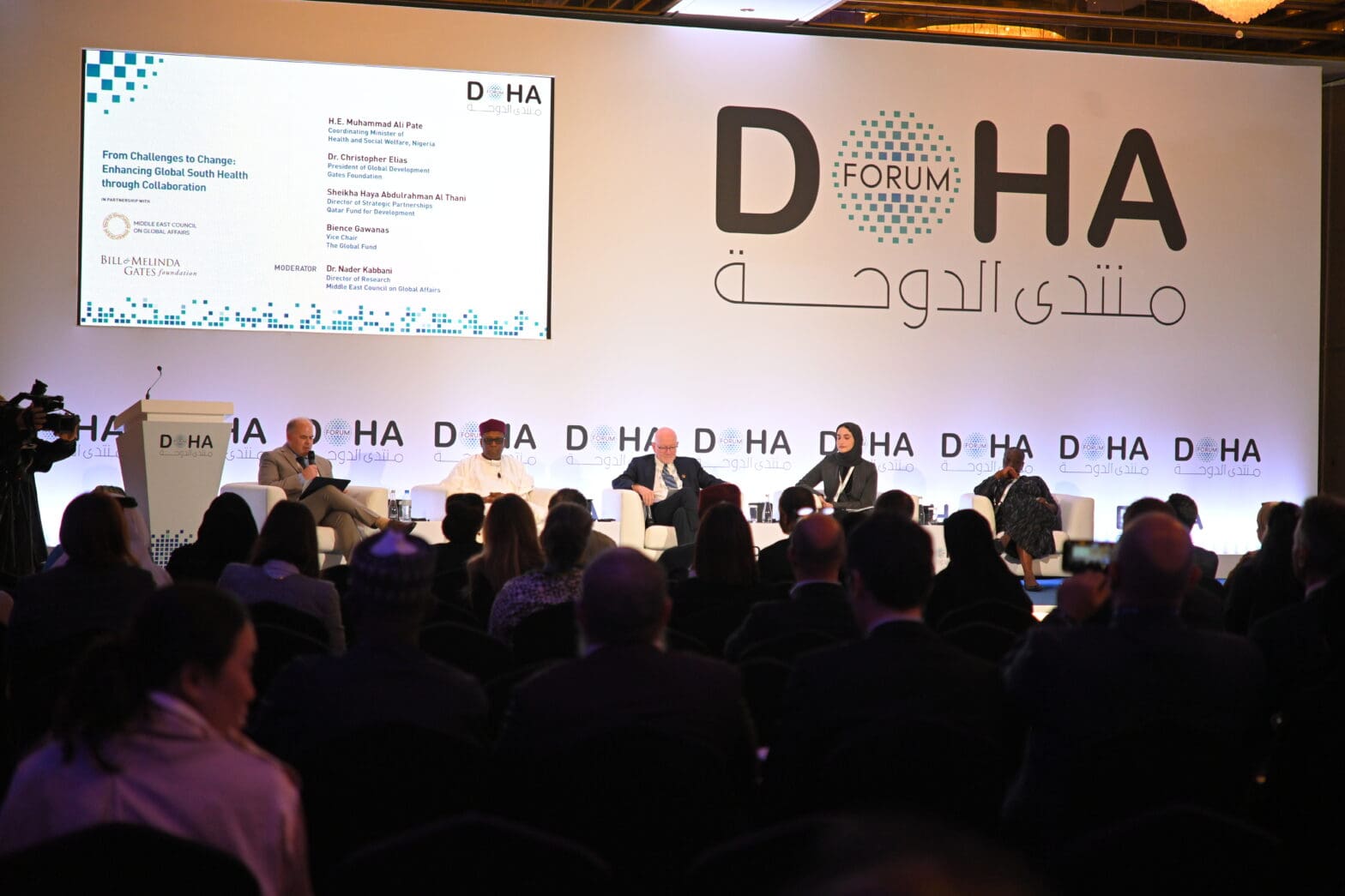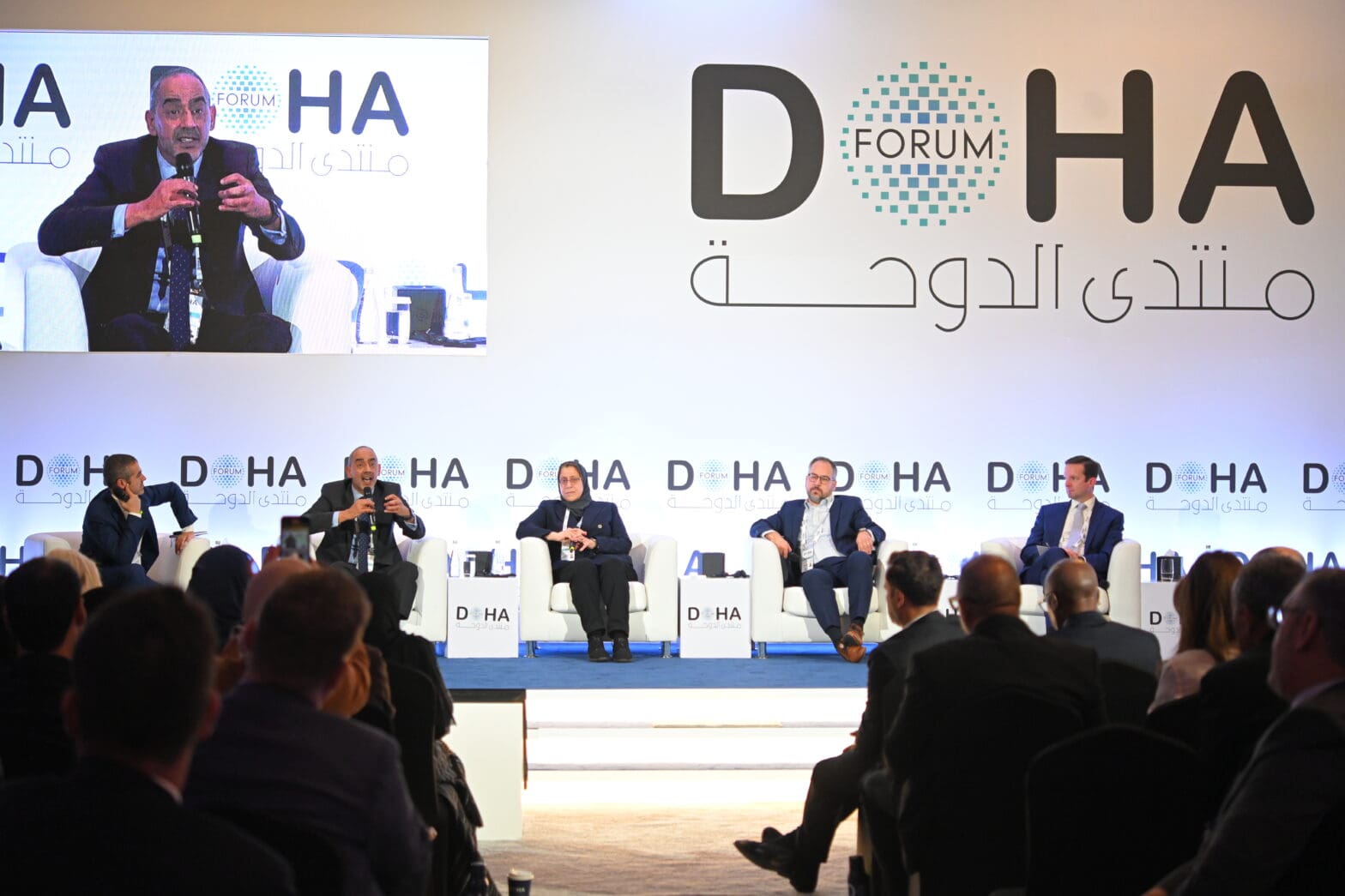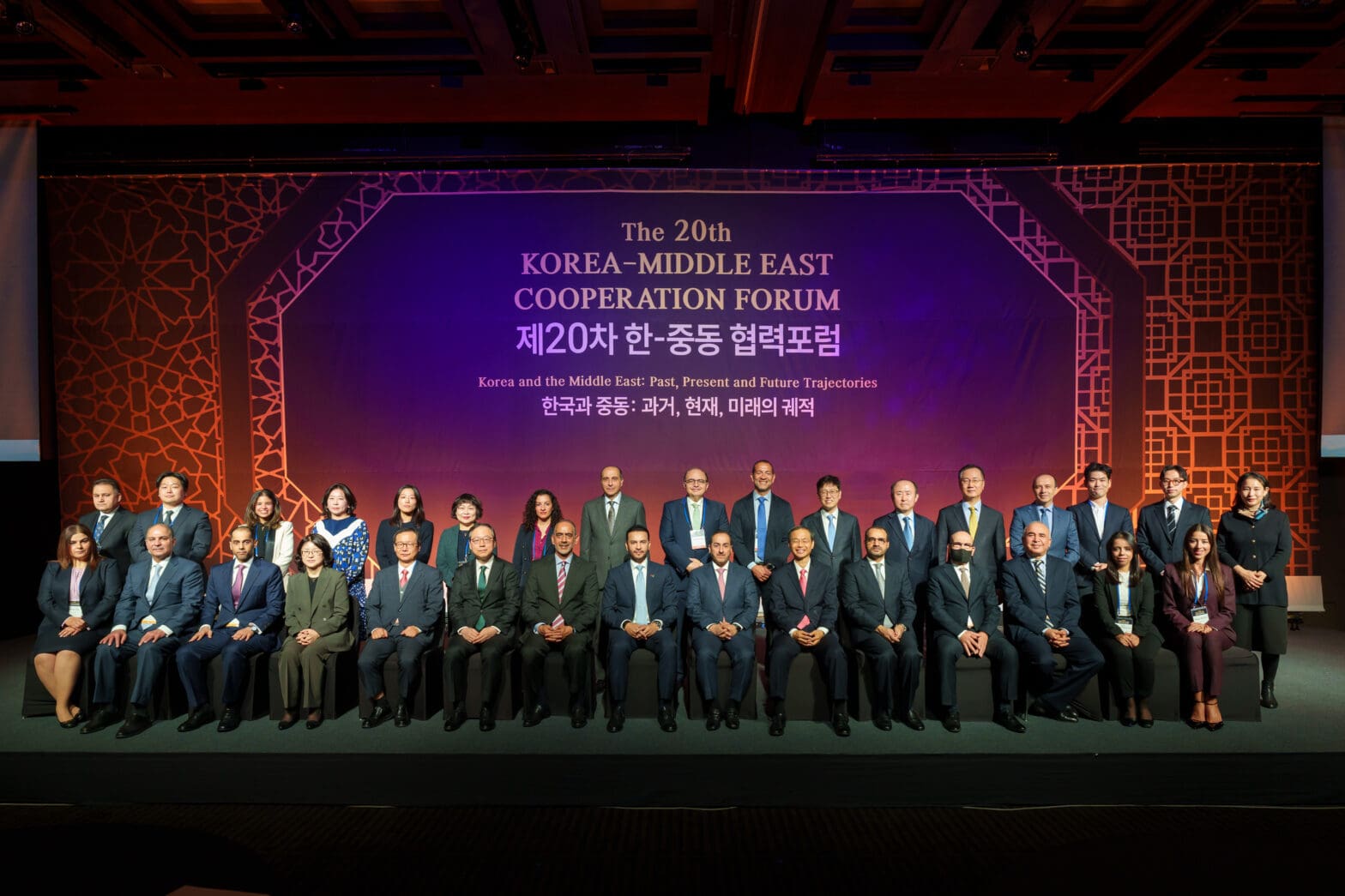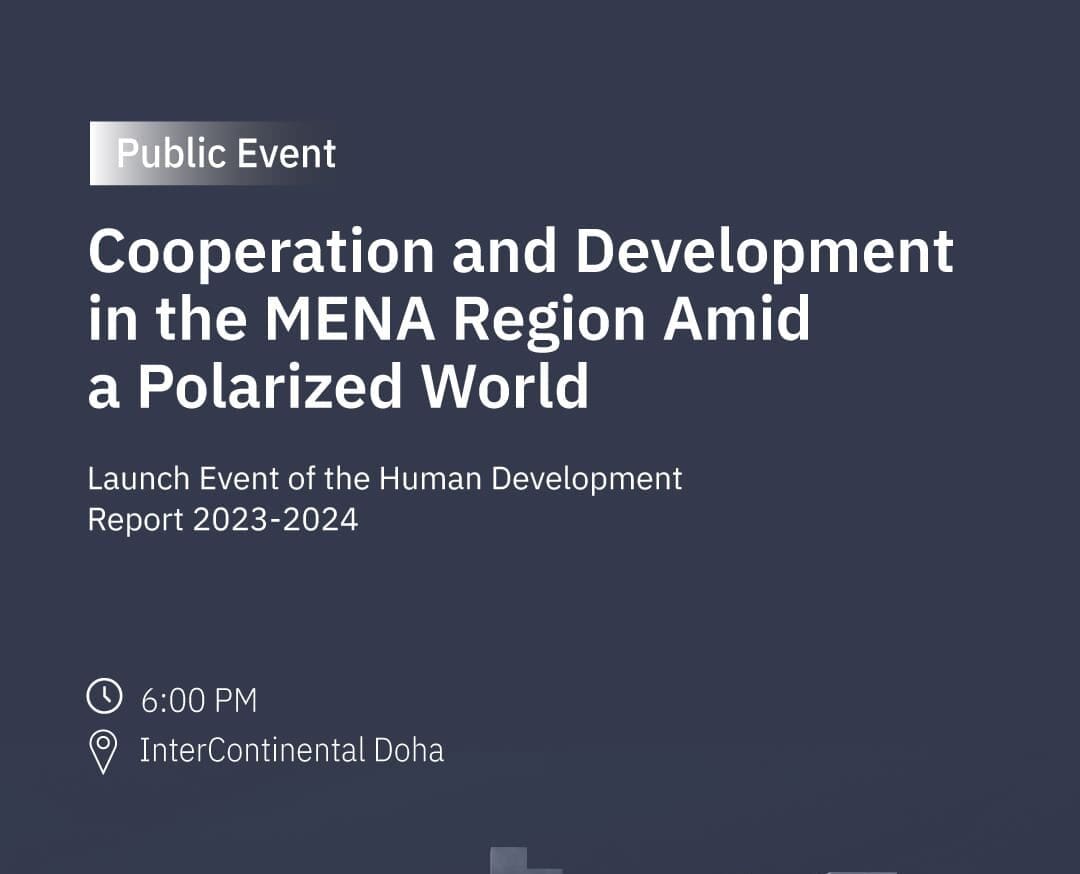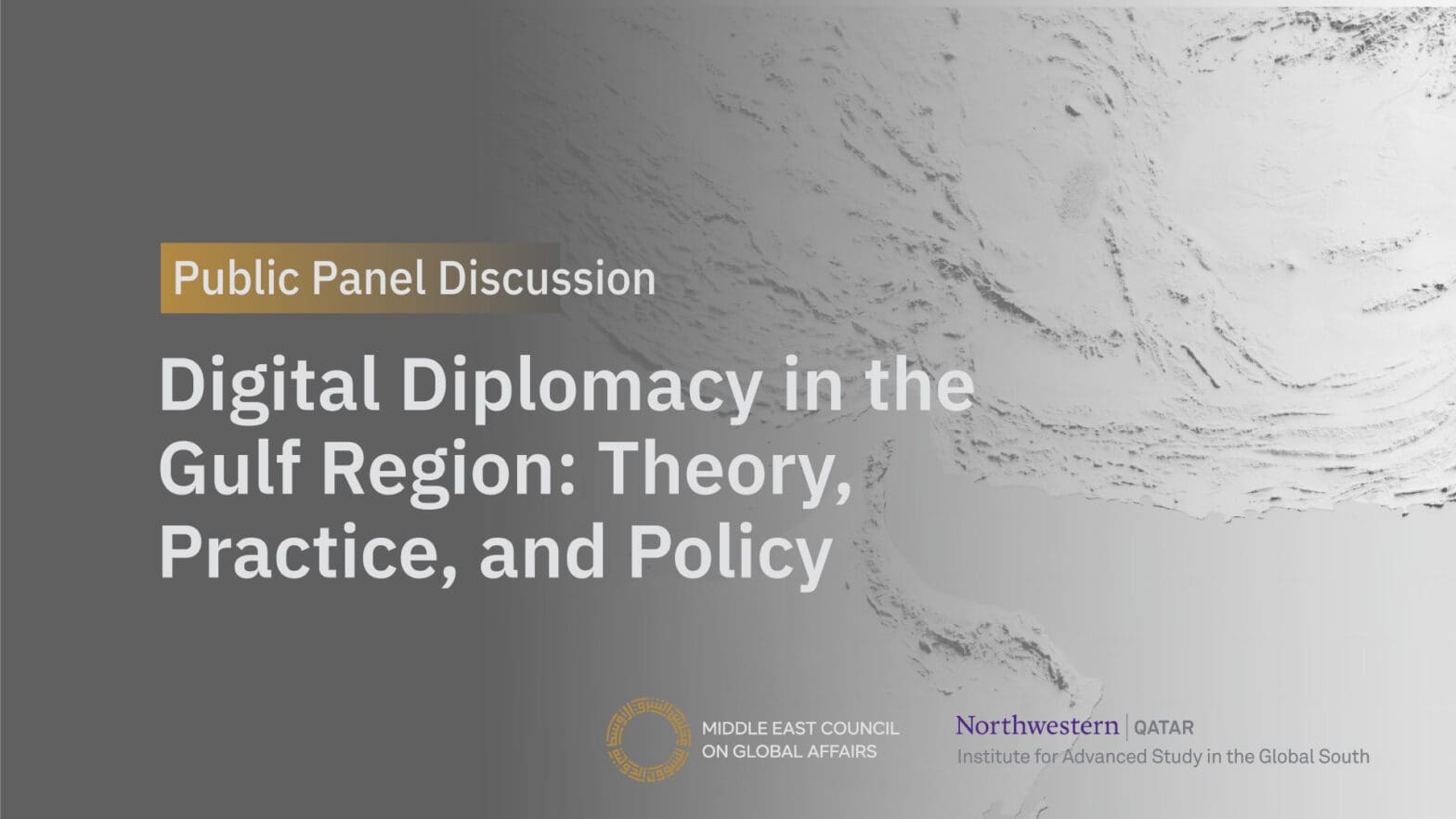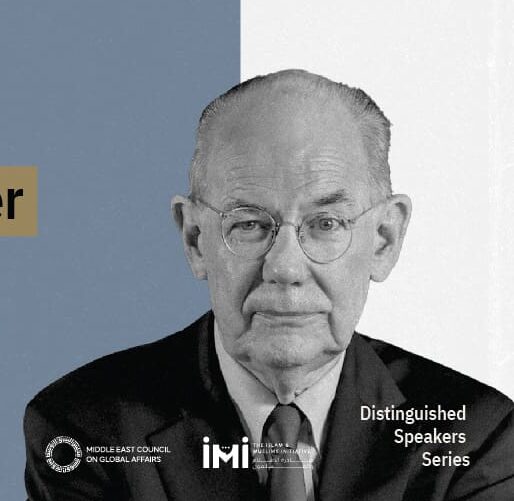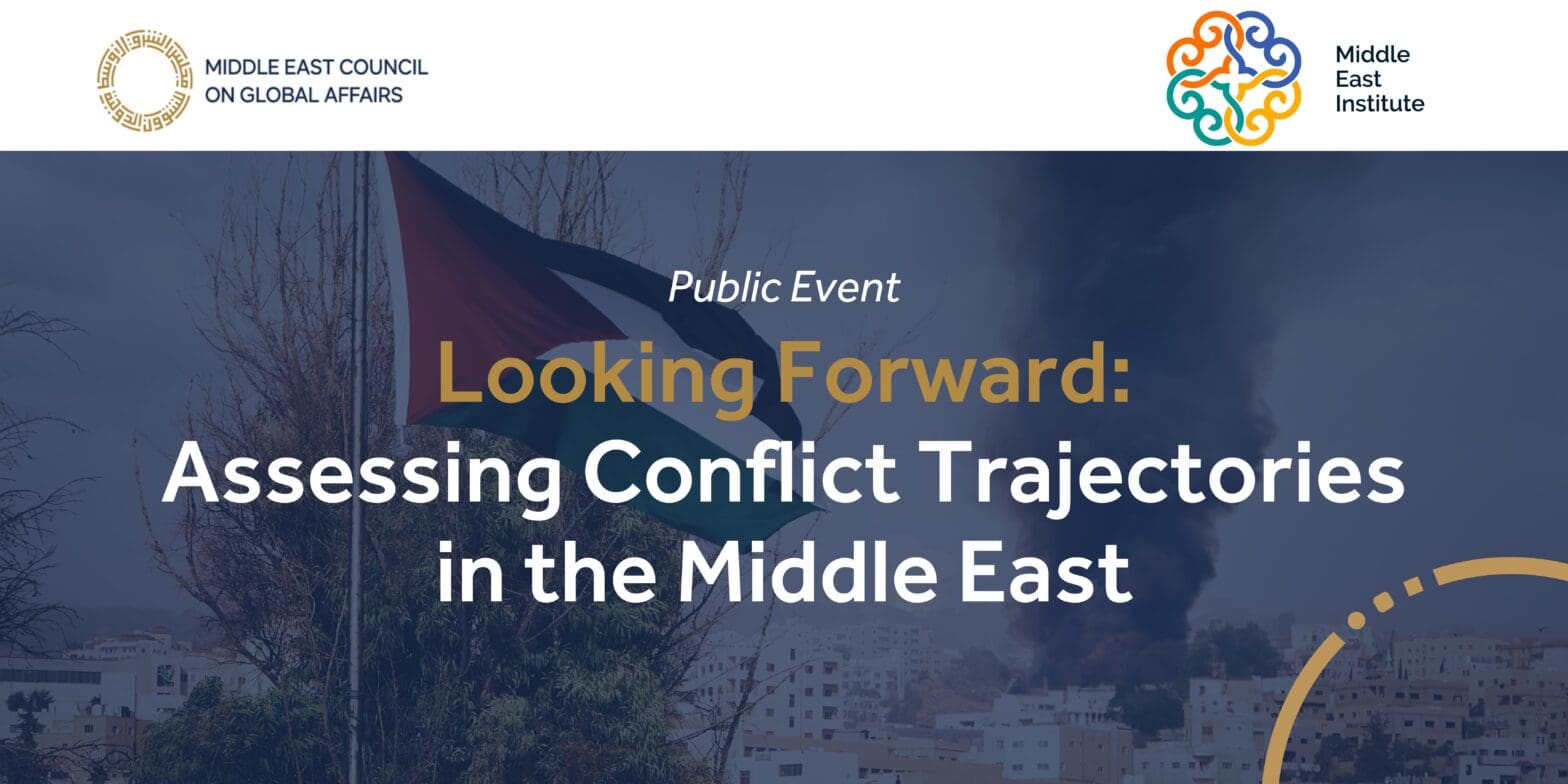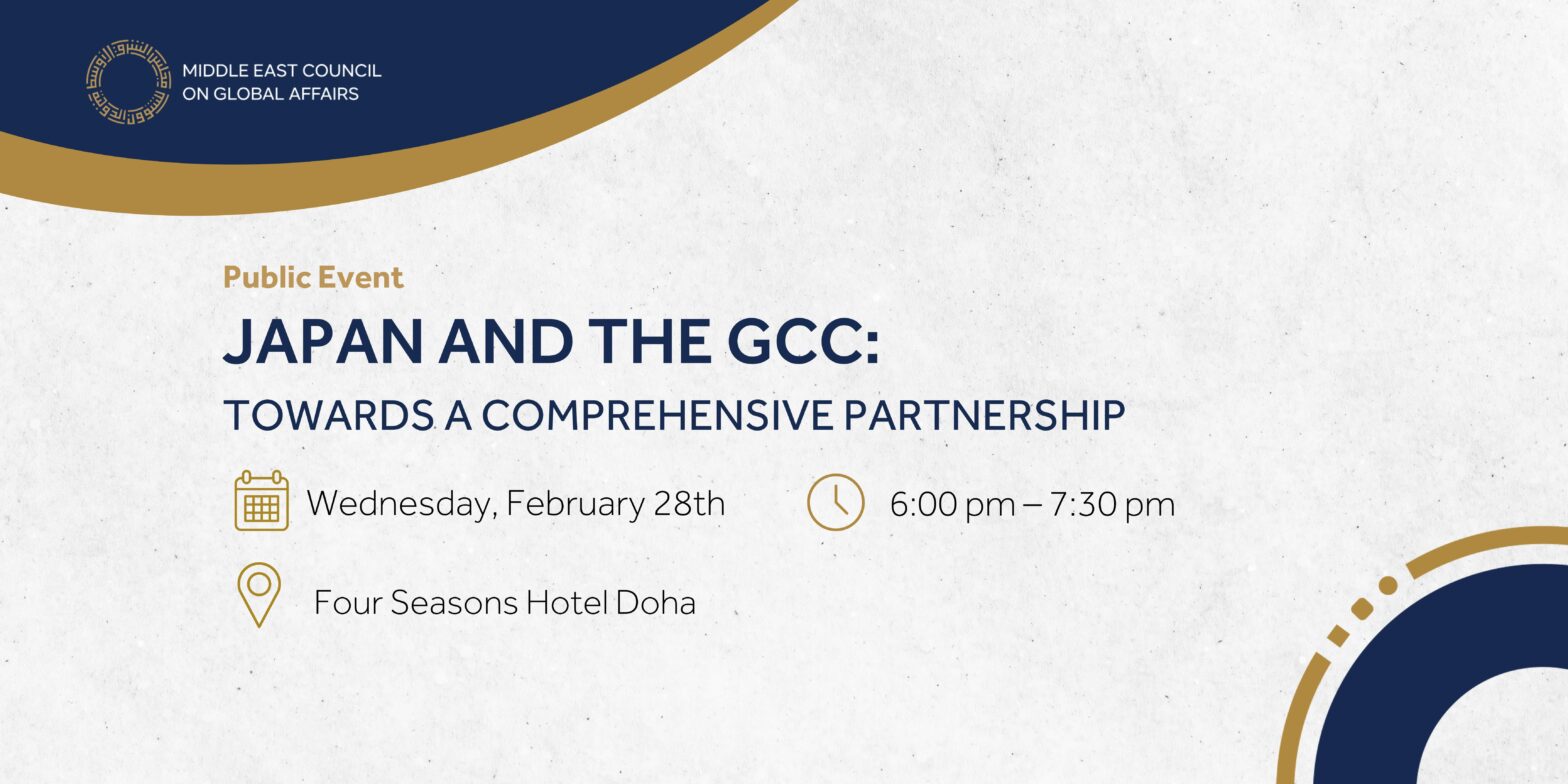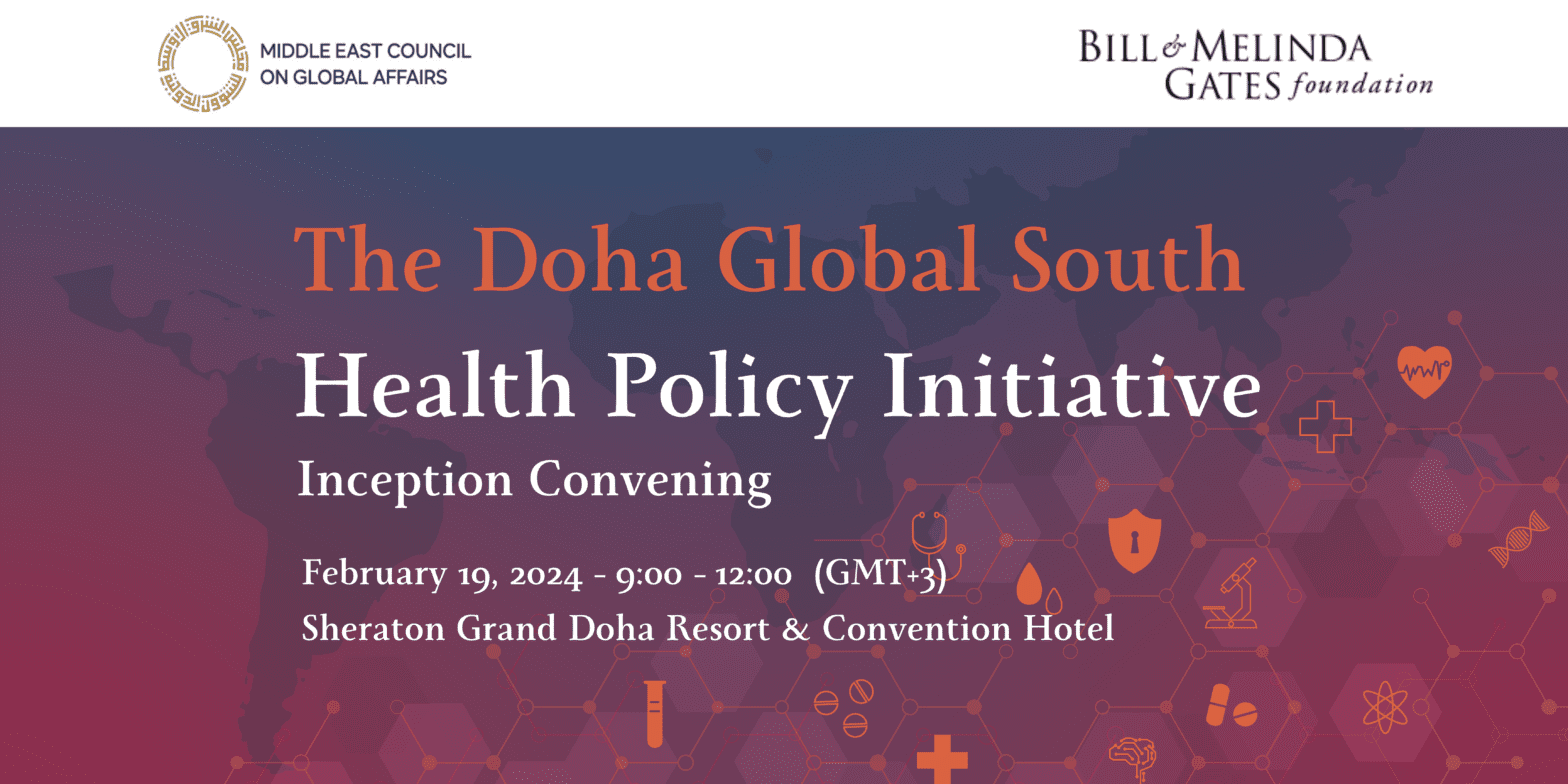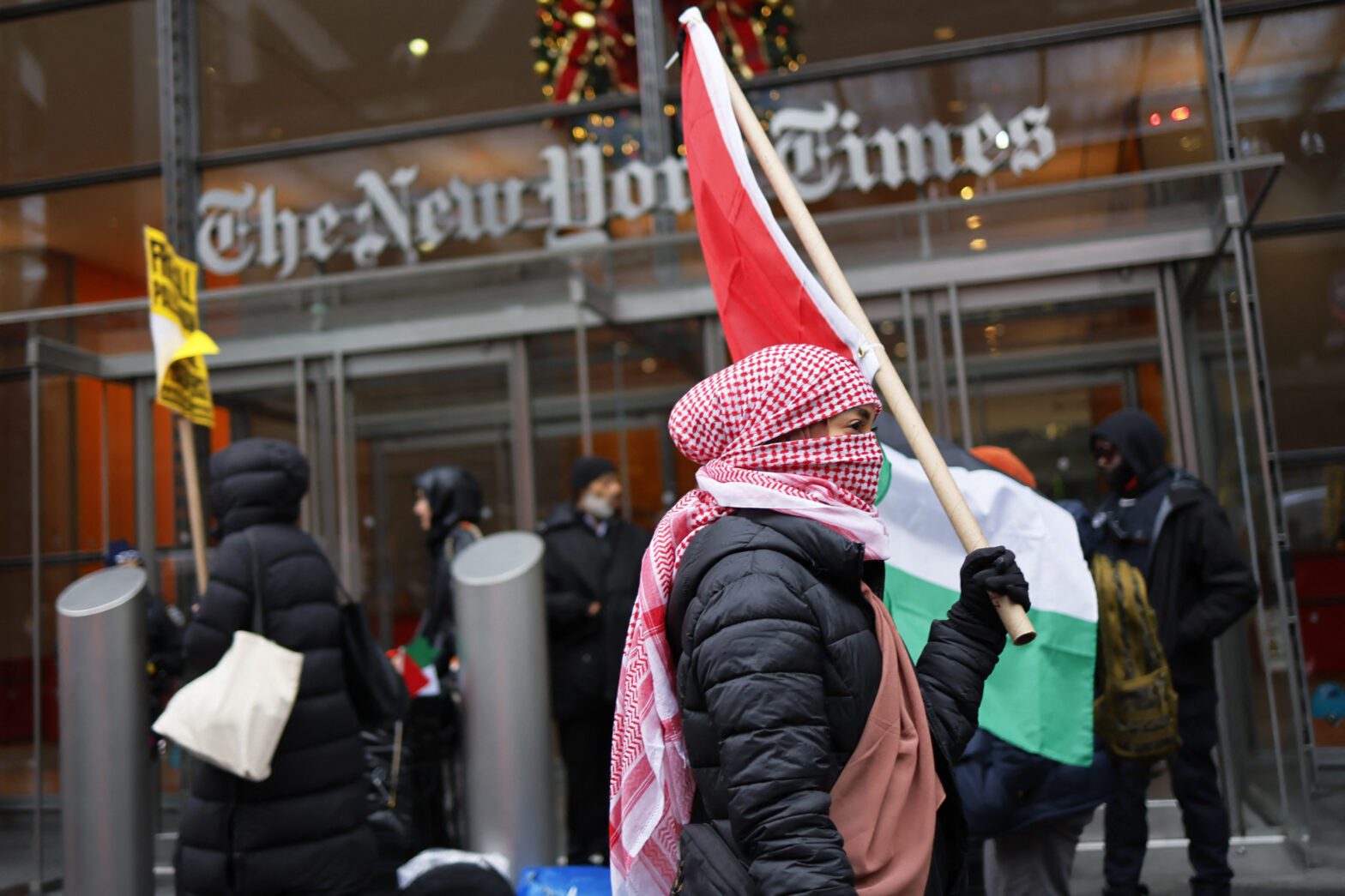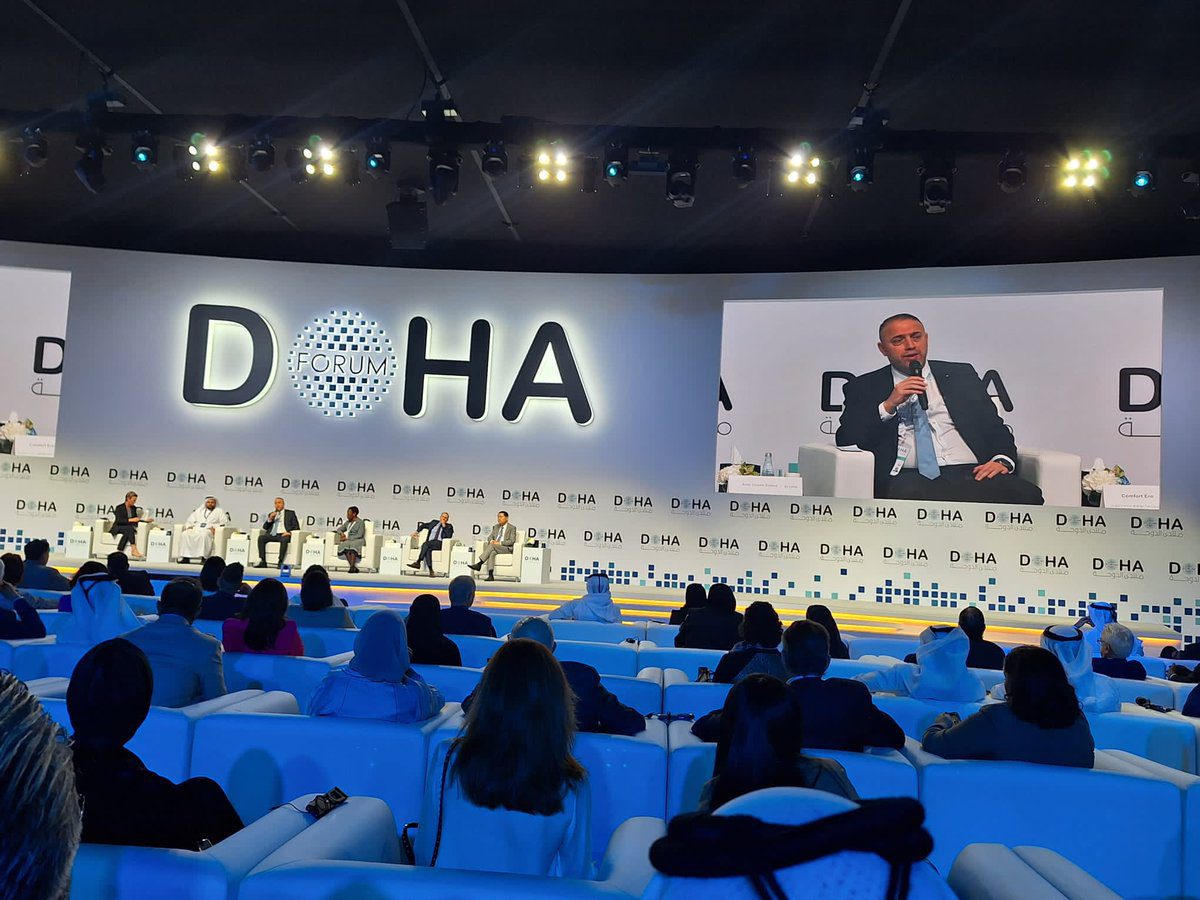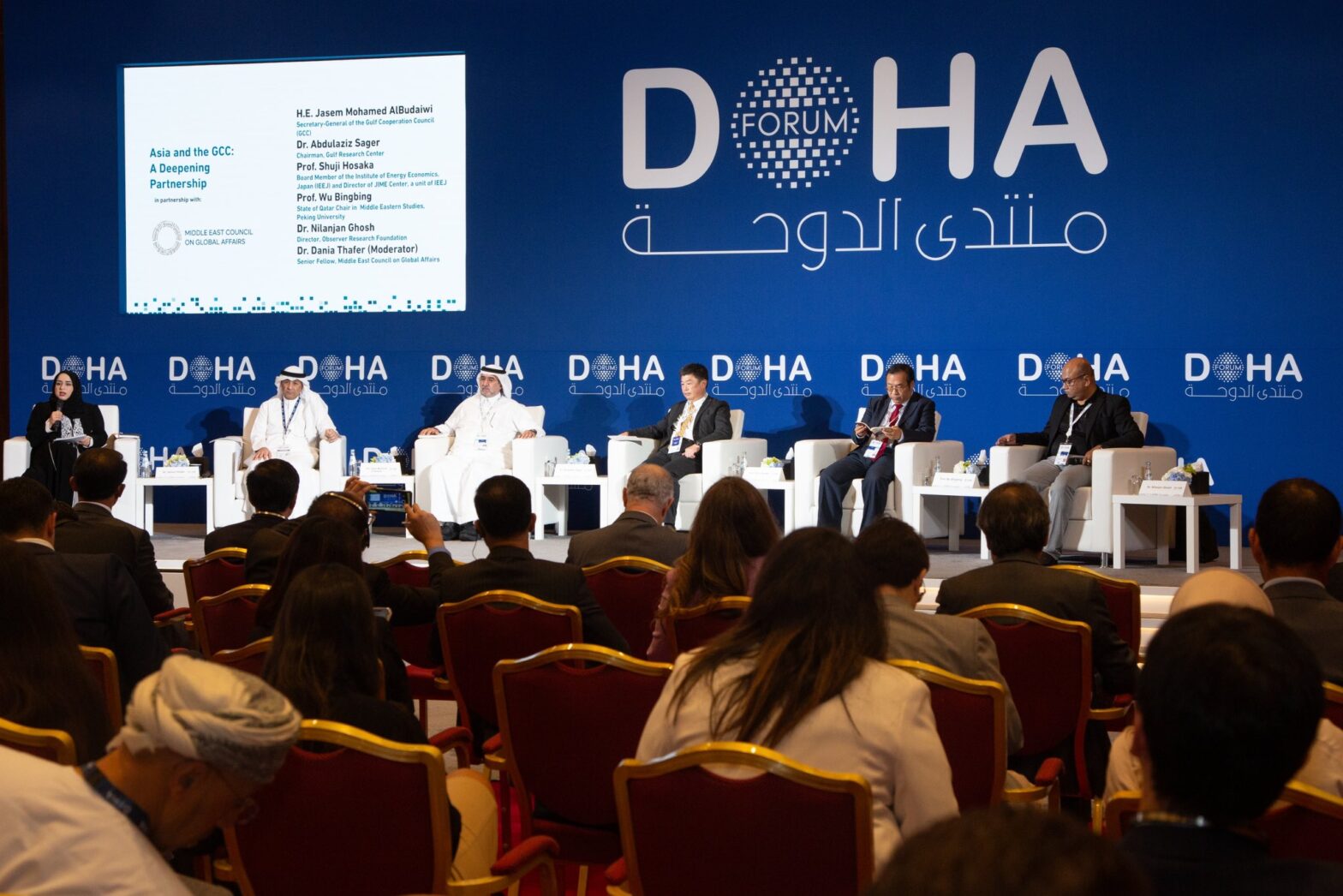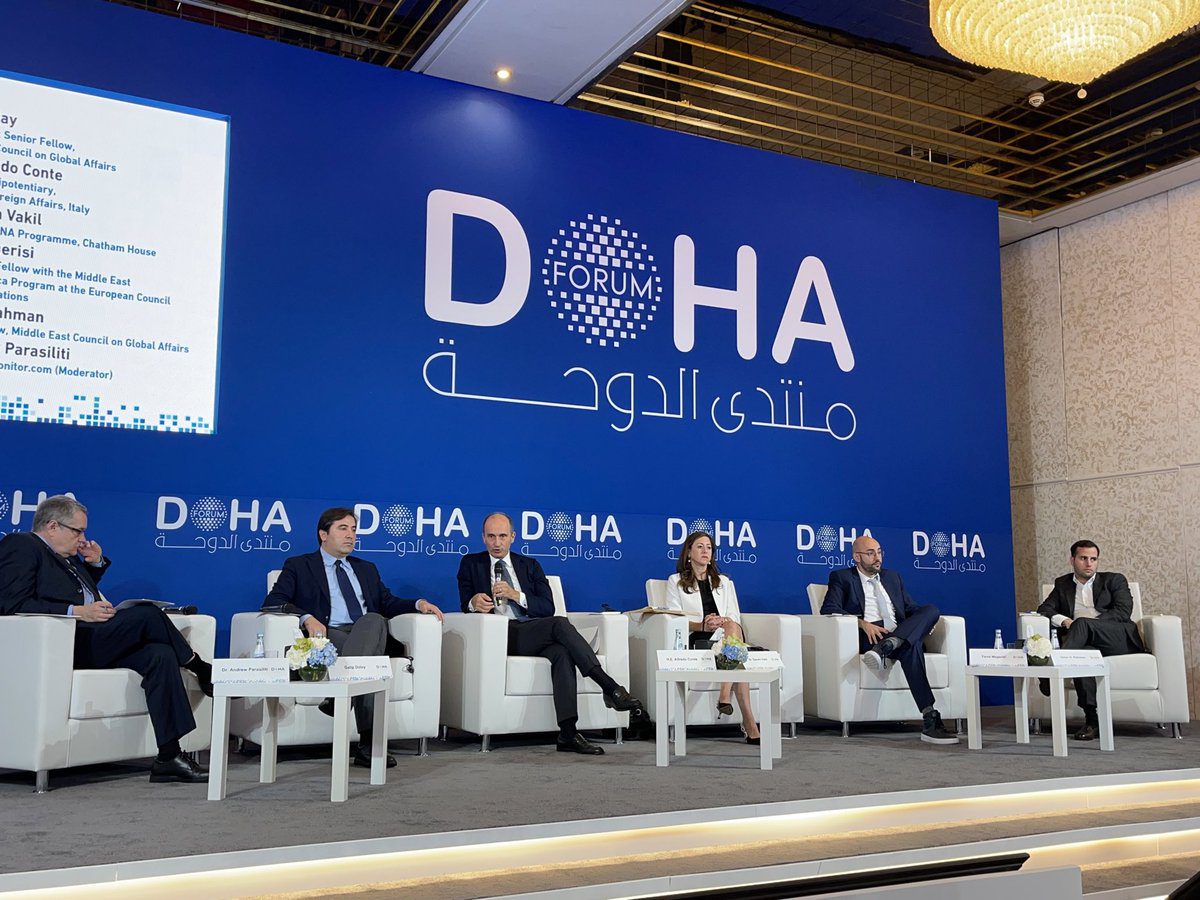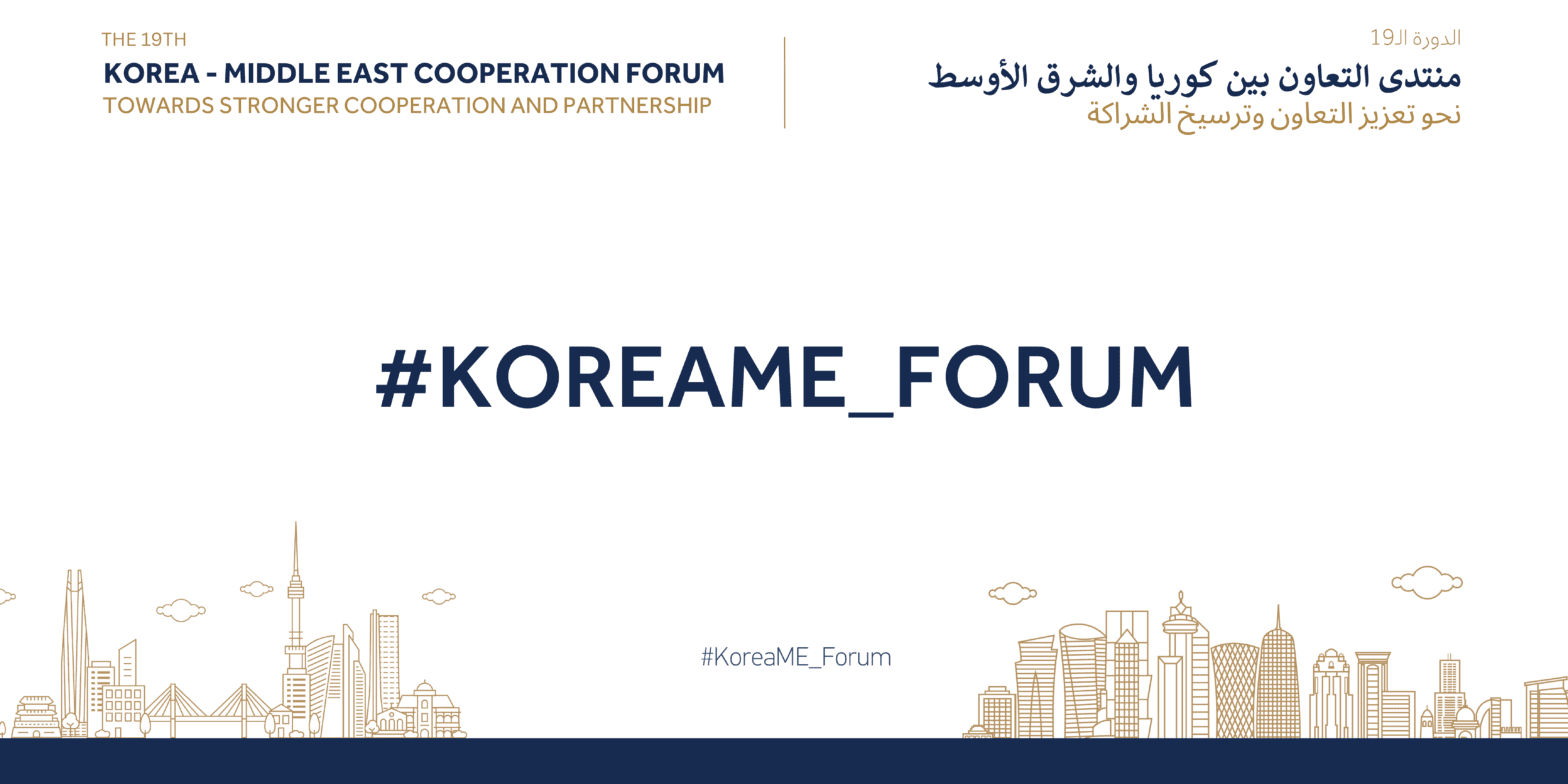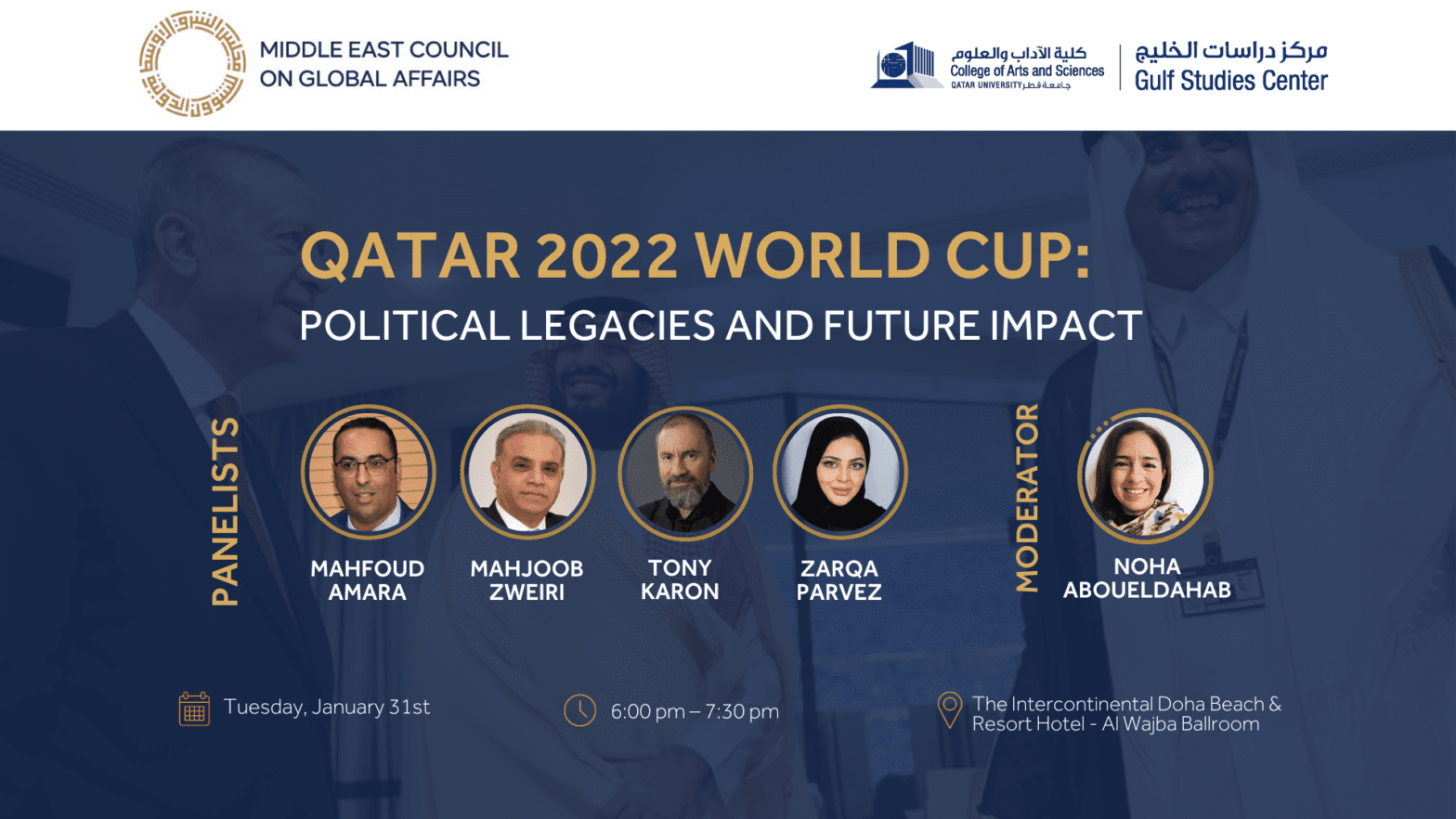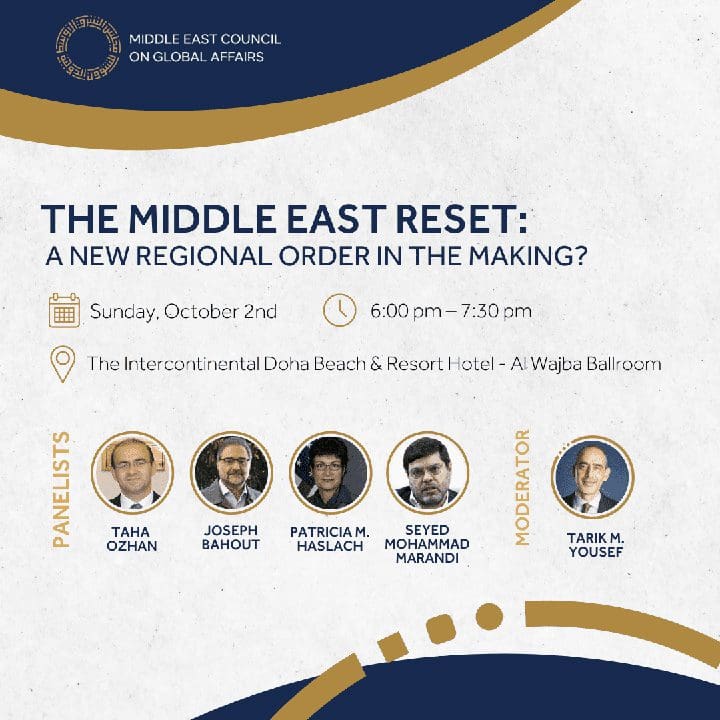At the 20th Jeju Forum for Peace and Prosperity, the Middle East Council on Global Affairs, Korea-Arab Society, and Seoul National University Asia Center co-hosted a session titled “A Second Trump Administration and the Middle East: Prospects for Peace and the Role of Korea.” The discussion explored how a potential second Trump term could shape U.S. policy in the region—emphasizing strategic alliances, economic leverage, and reduced military engagement—and examined South Korea’s growing diplomatic and economic role in fostering regional stability.
Event Type: Public Panel
Syria’s Political Transition—Youth Inclusion from a Syrian, Regional and EU perspective
At the Stockholm Forum on Peace and Development, the Middle East Council on Global Affairs and the Swedish Dialogue Institute convened a panel highlighting the pivotal role of Syrian youth in shaping the country’s future. Framed as a Youth & Experts Reverse Panel, the session emphasized the importance of meaningful youth inclusion in peacebuilding, justice, and reconstruction, and explored how diaspora communities and international institutions can support long-term engagement.
Inclusive Peacebuilding in MENA
The inaugural U-Talk event brings together experts to explore how inclusive, education-driven approaches can support peacebuilding in the Middle East and North Africa, with a focus on empowering women, youth, and civil society.
70 years after Bandung: Lessons for a New Global Order
Seventy years after the Bandung Conference, this panel brings together leading scholars to examine how the legacy of non-alignment informs today’s global shifts toward multipolarity and multi-alignment. Hosted by the Middle East Council on Global Affairs and Oxford University, the discussion explores the past and present struggles for a more inclusive and balanced international system.
Dossier Launch: Carbon Emissions Reduction Strategies for Qatar
A dossier on Qatar’s decarbonization strategies will be launched at the Earthna Summit, featuring insights on LNG, renewables, and low-carbon technologies, alongside a panel discussion.
Innovative Solutions for Food Security and Sustainability
High-level panel by Qatar Charity & ME Council explores innovation, sustainability, and policy in tackling global food insecurity.
From Streets to Screens: How MENA Youth Are Transforming Activism
The Middle East Council on Global Affairs’ annual Suhoor highlights the role of youth in leveraging digital activism amid crises and conflicts in Palestine, Sudan, Syria, and Lebanon. The discussion explores the challenges young activists face and their impact on shaping the region’s future.
Women at the Table: Reclaiming Narratives of Peace and Inclusion in the Middle East
The Middle East faces persistent conflicts and crises—Palestine, Lebanon, and Syria serve as recent stark reminders of a region grappling with war and instability.
From Challenges to Change: Enhancing Global South Health through Collaboration
Explore collaborative solutions to critical health challenges in the Global South. Learn about the Doha Global South Health Policy Initiative, launched by the Middle East Council on Global Affairs and the Bill & Melinda Gates Foundation with Qatar’s support, fostering dialogue and action for enhanced global health.
Shifting Arab Public Opinion and the Gaza War
the Middle East Council on Global Affairs in partnership with the Arab Barometer examine the implications of these shifts on the region’s future and hopes for a resolution to the Palestinian Israeli conflict.
The 20th KOREA-MIDDLE EAST COOPERATION FORUM
The Middle East Council on Global Affairs (ME Council) is co-hosting the 20th Korea-Middle East Cooperation Forum on November 26, 2024, in Seoul, Korea under the theme “Korea and the Middle East: Past, Present and Future Trajectories”.
Cooperation and Development in the MENA Region Amid a Polarized World
As the global landscape grows more interconnected, addressing shared challenges has never been more urgent.
Digital Diplomacy in the Gulf Region: Theory, Practice, and Policy
To examine the shifting landscape of digital diplomacy, the Middle East Council on Global Affairs (ME Council), in partnership with the Institute for Advanced Study in the Global South at Northwestern University in Qatar, will be hosting a panel discussion. Experts will explore how digital technologies can enhance communication, security, and adaptability in diplomacy.
A Year After October 7: Gaza and Its Global Implications – In Conversation with John Mearsheimer
The international system appears to be at an inflection point. Israel’s destruction of Gaza and the regional spillover, the wars in Ukraine and Sudan, have all tested the system’s ability to cope with grave violations of international law in seemingly unprecedented ways, while exposing the stark double standards in how advocates of the current international order respond to those violations.
Looking Forward: Assessing Conflict Trajectories in the Middle East
To explore the future trajectories of conflict in the region, the Middle East Council on Global Affairs (ME Council), in collaboration with the Middle East Institute (MEI), will host a public panel discussion. Experts will explore regional de-escalation and conflict resolution efforts amidst the war on Gaza.
Annual Suhoor: Voices from the Arab Diaspora: Public intellectuals, Literature, and Exile
The Middle East Council on Global Affairs (ME Council) hosted a Suhoor Gala, featuring a panel discussion featuring prominent Arab writers and public intellectuals who address various issues concerning the Arab world from their perspectives in the diaspora. The panel discussed topics such as identities, hyphenated identities, how their status as Arab exiles influences their writing, and their position in both historical and contemporary contexts of Arab intellectuals in exile or the diaspora.
Japan and the GCC: Towards a Comprehensive Partnership
The Middle East Council of Global Affairs (ME Council) convened a panel of experts who touched on the historical foundations of Japan-GCC ties, the economic interdependence between both regions, and the evolving strategic and geopolitical considerations shaping this critical partnership.
The Doha Global South Health Policy Initiative
The Middle East Council on Global Affairs and the Bill & Melinda Gates Foundation, with the support of the Ministry of Foreign Affairs of the State of Qatar, have officially launched the Doha Global South Health Policy Initiative. To kick off this initiative, a high-level panel discussion titled “Enhancing Primary Healthcare Access in the Global South: Challenges and Solutions” was held on February 19, 2024, at the Sheraton Grand Doha. The event brought together representatives from nine low-and-middle-income Countries (LMICs) in Africa and Asia, alongside international experts and key stakeholders from Qatar, including the Ministry of Public Health, the Ministry of Foreign Affairs, Qatar Fund for Development, Qatar University, and Hamad Bin Khalifa University.
Shaping Public Opinion on Gaza: Disinformation, Propaganda, and Alternative Narratives
The Middle East Council on Global Affairs (ME Council) co-hosted the 18th Korea-Middle East Cooperation Forum on November 18, 200 in Seoul, Korea, in partnership with the Korea-Arab Society (KAS) and Jeju Peace Institute (JPI), the event was sponsored by the Ministry of Foreign Affairs of the Republic of Korea. First launched in 2003, this forum is a track 1.5 forum held annually in Korea and countries in the Middle East alternately and attended by both private and public sectors. The 19th forum will be held next year in Doha.
Palestine Has Become a Global Crisis – Does It Have a Global Solution?
The Middle East Council on Global Affairs (ME Council) organized a plenary discussion at the Doha Forum titled “Palestine Has Become a Global Crisis – Does It Have a Global Solution?” The plenary was moderated by Becky Anderson, managing editor and anchor of Connect the World at CNN, and included Mohammed bin Abdulaziz Al-Khulaifi, minister… Continue reading Palestine Has Become a Global Crisis – Does It Have a Global Solution?
Asia and the GCC: A Deepening Partnership
As the economic weight of the world shifts towards Asia, the Gulf Cooperation Council (GCC) is deepening ties with Asia’s biggest economies, including China, South Korea, Japan and India.
The Middle East’s Fragile Reset: What Future?
As part of the 2023 Doha Forum, the Middle East Council on Global Affairs held a panel discussion titled “The Middle East’s Fragile Reset: What Future?”
The 19th Korea Middle East Cooperation Forum: Towards Stronger Cooperation and Partnership
The 19th edition of the Korea-Middle East Cooperation Forum, held in Doha, Qatar, is sponsored by the Ministry of Foreign Affairs of the State of Qatar and the Ministry of Foreign Affairs of the Republic of Korea and co-hosted by the Diplomatic Institute of the Ministry of Foreign Affairs of the State of Qatar, the Middle East Council on Global Affairs (ME Council), Korea-Arab Society (KAS), Jeju Peace Institute (JPI), and the Ibn Khaldon Center at Qatar University.
Qatar 2022 World Cup: Political Legacies and Future Impact
With the World Cup now over, the Middle East Council on Global Affairs (ME Council) in collaboration with the Gulf Studies Center at Qatar University is convening a panel to discuss the potential legacies of the tournament, addressing key questions about the event’s political impacts…
18th Korea Middle East Cooperation Forum
The Middle East Council on Global Affairs (ME Council) co-hosted the 18th Korea-Middle East Cooperation Forum on November 18, 200 in Seoul, Korea, in partnership with the Korea-Arab Society (KAS) and Jeju Peace Institute (JPI), the event was sponsored by the Ministry of Foreign Affairs of the Republic of Korea. First launched in 2003, this forum is a track 1.5 forum held annually in Korea and countries in the Middle East alternately and attended by both private and public sectors. The 19th forum will be held next year in Doha.
The Middle East Reset: A New Regional Order in the Making?
The event convened a panel of experts from the region to reflect on the following questions among others: Is there a new regional order in the making in the Middle East? If so, what are the features of this order? If not, what is on the horizon for the region? How are regional escalation and de-escalation political dynamics evolving? How is great power competition shaping regional politics and how does the region respond to it?

